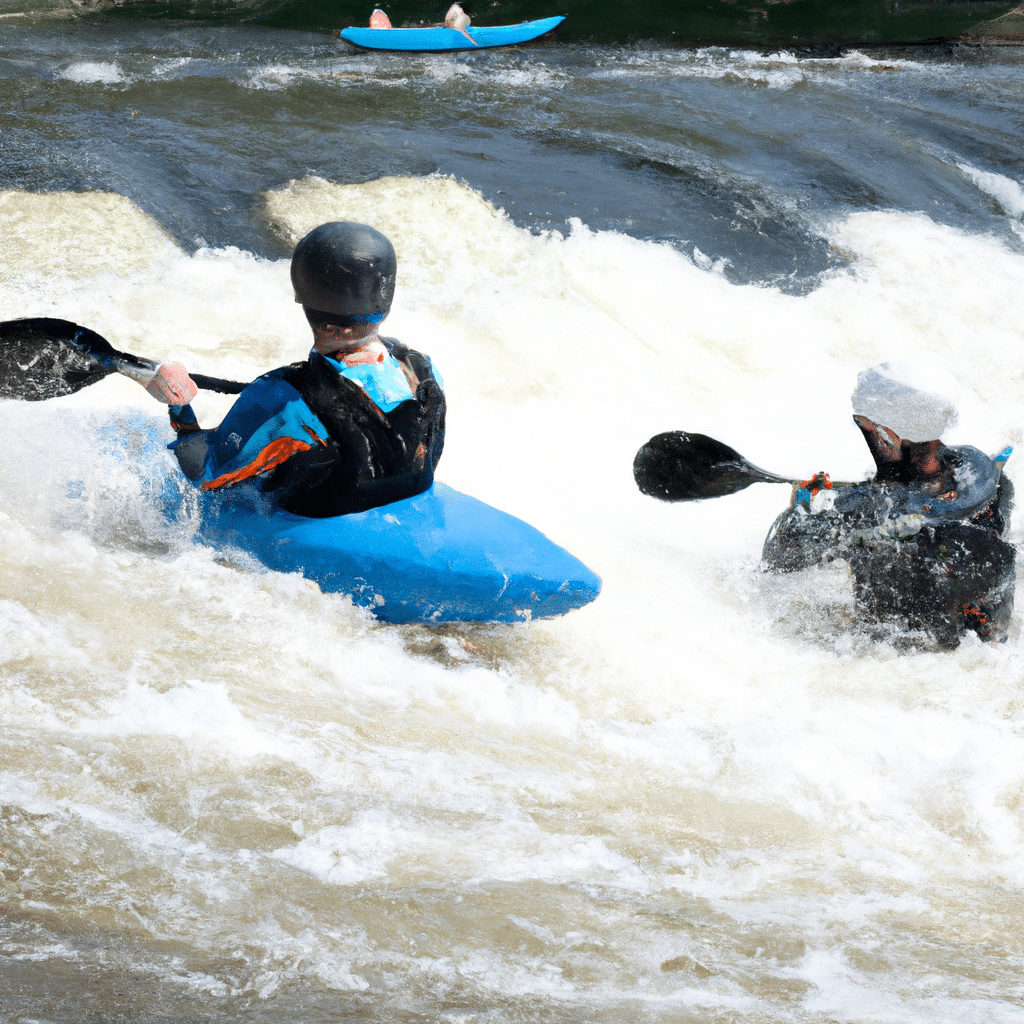Memphis residents and visitors alike are scratching their heads over the sudden closing of Adventure River. For many years, visitors have flocked to this cherished water park, which is renowned for its exciting attractions and family-friendly ambience. However, the unknown factors that led to its closure have prompted discussion. Here, we investigate the mystery of Adventure River’s collapse and speculate on what may have caused the park to go down.
- 1. Introduction
- 1.1. Overview of Adventure River in Memphis
- 1.2. Importance of Adventure River as a tourist attraction
- 1.3. Reasons for the closure of Adventure River
- 2. Financial Challenges
- 2.1. Declining revenue and visitor numbers
- 2.2. Increased operational costs
- 2.3. Inability to compete with other water parks
- 2.4. Lack of investment and maintenance
- 2.5. Impact of economic downturn
- 3. Safety and Legal Issues
- 3.1. Accidents and safety concerns
- 3.2. Legal actions and lawsuits
- 3.3. Failed inspections and compliance issues
- 3.4. Difficulty obtaining necessary permits
- 3.5. Inability to meet safety standards
- 4. Changing Consumer Preferences
1. Introduction
When it was open, Memphis’s Adventure River water park welcomed guests from all over the country. The park’s thrilling water slides, lazy river, and wave pool attracted families and adventurers alike. But the park closed without warning, and the enigmatic circumstances surrounding its demise have left many people wondering what happened.
1.1. Overview of Adventure River in Memphis
Memphis’s Adventure River was a popular tourist destination because it provided thrill-seekers with a wide variety of exciting activities to choose from. Located in the middle of the city, this water park was a welcome relief from the sweltering heat. Many people, both tourists and locals, were baffled by the suddenness of its termination.
This piece is an attempt to explain why Adventure River in Memphis was shut down. We intend to elucidate this fascinating topic by looking into the park’s past, experiencing its most popular features, and investigating the causes of its eventual demise.
1.2. Importance of Adventure River as a tourist attraction
Memphis’s Adventure River has quickly become a top tourist destination. Travelers come from all around to experience this fascinating location. Adventure River has quickly become a popular destination since it provides thrill-seekers with an unforgettable experience.
Locals and visitors alike have been left wondering why Adventure River was closed. The sudden closure has left many people wondering why it occurred. This essay will examine the relevance of Adventure River as a tourist attraction and look into the mystery surrounding its shutdown in Memphis.
1.3. Reasons for the closure of Adventure River
Many Memphis residents and visitors are baffled by the unexpected closure of Adventure River, a beloved water park. People in the area are wondering what led to the store’s sudden closure, and they are full of questions. This article will investigate the mysterious circumstances surrounding Adventure River’s closing and speculate on the factors that may have contributed to the attraction’s demise.
2. Financial Challenges
The sudden closing of Adventure River in Memphis has left many curious about the causes behind the park’s demise. The park’s financial difficulties were a major contributor to this outcome. Keeping an amusement park up and running calls for massive expenditures on upkeep, new attractions, advertising, and personnel. Adventure River had a hard time making ends meet, so bills kept piling up and the company was in jeopardy financially. Because of the park’s proximity to other entertainment options, it was also challenging to maintain a steady flow of visitors. Adventure River had to close because the financial difficulties grew too great to bear. The loss of such a cherished park illustrates the need for long-term financial planning in the entertainment industry and has left a vacuum in the hearts of the local community.
2.1. Declining revenue and visitor numbers
The Memphis attraction Adventure River has had a rough go of it financially in recent years, with both revenue and attendance falling. The once-popular water park failed to maintain its patronage and was eventually shut down as a result.
Adventure River’s financial woes can be attributed in large part to the rise of other water park companies. Adventure River has seen a decline in attendance as other, more exciting water parks have opened in adjacent cities. As a result, the park’s income has dropped dramatically, making it challenging to meet its running costs.
Alterations in consumer tastes have also contributed to the drop in attendance. Adventure River has not adapted to the changing tastes of its customers by offering any new or exciting attractions. Therefore, people have gone to other water parks that provide more thrilling and varied activities.
Additionally, Adventure River’s financial security has been undermined by the regional economic crisis. When the economy is unstable, people often reduce their spending on non-essentials, including fun things like trips to water parks. Because of this, fewer people are coming, which in turn means less money.
Adventure River took several efforts to reduce expenses in an effort to meet these issues. However, this was not enough to stop the downward spiral. The park’s administration made the tough call to close its gates when the costs grew too great to bear.
There is now nowhere in Memphis to go for fun because Adventure River is no longer there. In the highly competitive leisure industry, it is a useful reminder of the significance of responding to shifting market conditions and consistently delivering novel experiences to tourists.
2.2. Increased operational costs
Adventure River in Memphis has struggled financially due in part to rising operational costs. Due to increased maintenance, employee wage, and other operational costs, the amusement park has struggled to stay open. Adventure River has struggled to meet customer expectations while keeping prices low in the face of rising industry competition.
The park has experienced a steep price increase in essential supplies and machinery throughout the years. There will be costs for things like water purification systems, precautions, and routine upkeep of attractions. Adventure River’s budget has been stretched thin as a result of these costs, making it more challenging for the park to invest adequately in other crucial areas of operation.
Furthermore, the park has had issues with salary management. Due to increases in state and federal minimum wage standards, Adventure River has had to raise employee compensation, which has increased operating expenses. The park has also increased its wage and salary expenditures by hiring seasonal staff at busy times of the year.
Because of erratic customer numbers, Adventure River has also found it difficult to sustain a reliable revenue source. The park is struggling to balance its books because of fluctuating attendance and revenue. As a result, it has become even more difficult to keep up with operational expenditures and fund much-needed upgrades and refurbishments.
In sum, rising operational costs have been a major source of difficulty for the Memphis location of Adventure River. The park’s budget has been stretched thin by rising maintenance, staff wage, and other operational costs, making long-term financial security more precarious. For Adventure River to thrive and survive in the long run, it is essential that these issues be resolved and that viable cost-cutting measures be identified.
2.3. Inability to compete with other water parks
Memphis’s Adventure River had a lot of money problems that made it less competitive with other water parks. The park was well-liked by the neighborhood, but it had trouble drawing enough tourists to break even. Adventure River was unable to meet the needs of its customers by adding attractions or improving its facilities due to a lack of funding. There was also stiff competition from nearby water parks with bigger advertising expenditures and more attractions. As a result, it became harder for Adventure River to draw and keep customers, and the park ultimately shut down.
2.4. Lack of investment and maintenance
The lack of funding and maintenance was a major factor in the eventual closing of Adventure River in Memphis. The park’s proprietors were having financial difficulties and hadn’t provided enough money for maintenance. The result was a reduction in attendance and dissatisfaction among returning customers as the infrastructure and attractions aged.
The park would not be able to meet the needs of its patrons or compete with other facilities if it did not receive consistent funding increases. The park’s popularity among thrill-seekers and families alike declined as several rides became unsafe and unreliable due to their age. Furthermore, safety concerns brought on by improper upkeep discouraged potential guests from making Adventure River their vacation spot of choice.
In addition, Adventure River’s financial difficulties made it tough to win over new clients and keep the ones it already had. The park lacked the resources to launch successful advertising efforts or provide attractive discounts to attract customers. Adventure River’s gradual drop in attendance and financial stability may be traced back to the company’s lack of investment and strategic strategy.
Therefore, insufficient funding and upkeep contributed to Adventure River’s eventual demise. The park’s visitor numbers dropped and it struggled financially because of a lack of investment in maintenance, modernization, and promotion.
2.5. Impact of economic downturn
Any industry can feel the effects of a recession, and the entertainment business is no exception. Popular Memphis amusement park Adventure River has been struggling financially as of late. This has resulted in the park’s inexplicable closure, which has baffled both guests and workers.
Consumer spending drops during recessions, which contributed to Adventure River’s demise. When people are having money problems, one of the first things they do is reduce their spending on fun things like going to the movies or going out with friends. Therefore, it is difficult for Adventure River and other similar parks to generate enough revenue from their patrons to break even.
Moreover, Adventure River’s access to capital has been hampered by the ongoing economic downturn. It’s possible that the park’s administration struggled to secure necessary loans or investments due to the increased caution of financial institutions during the recession.
The shutdown of Adventure River has repercussions for the local economy and for the park’s staff. The loss of so many employment has made life even more difficult for Memphis residents.
In conclusion, Adventure River’s inexplicable shutdown can be attributed to financial difficulties brought on by the economic slump. The park’s financial woes may mostly be attributed to falling customer expenditure and challenging funding conditions. The shutdown has repercussions for the community at large and for the workers who have lost their jobs.
3. Safety and Legal Issues
Many tourists and Memphis natives alike have been left wondering what happened to Adventure River after it abruptly shut down earlier this year. Some safety and legal issues may have contributed to this terrible accident, while the specifics remain unknown.
The water slides and other attractions may pose a safety risk if they aren’t properly maintained. In order to keep their guests safe, water parks must undergo routine maintenance. Adventure River may have been shut down because it did not adhere to the necessary safety regulations, which could have resulted in accidents and injuries.
Liability is another possible area of contention in the law. There could have been legal repercussions for the park if events or accidents occurred in the past where visitors were injured or harmed due to negligence or faulty equipment. These lawsuits can be costly, which may have played a role in the park’s closure.
Adventure River may not have been able to stay in business if local legislation and compliance standards had been altered. The park may have closed rather than face potential fines or penalties for failing to comply with newly enacted restrictions.
Although these are just theories, they do bring to light some of the potential health and legal concerns that led to the shutdown of Adventure River in Memphis. The full motives behind this mysterious occurrence will be revealed only with the passage of time.
3.1. Accidents and safety concerns
The prevention of injuries and other mishaps is crucial to the smooth operation of any thrilling attraction. The closure of Adventure River in Memphis shed attention on numerous safety and legal issues that had been affecting the park for some time prior to its closing.
The frequent occurrence of accidents within the park’s boundaries was a major cause for alarm. Several reports of tourist injuries and illnesses have called into doubt the effectiveness of existing safety protocols. All the way from simple slips and falls to severe catastrophes involving water, these instances occurred.
The absence of routine maintenance and inspection of the park’s equipment and infrastructure has raised safety concerns. Some of the water rides and slides were discovered to be in disrepair, putting guests at risk. The safety of the guests was further jeopardized because the employees and lifeguards had not been properly educated to deal with emergencies.
The legal difficulties that led to Adventure River’s shutdown have received increased scrutiny as a result. People who got hurt while visiting the park filed several lawsuits against the business. These lawsuits brought to light the park administration’s laxity in protecting guests.
When Adventure River in Memphis was shut down, it revealed a pattern of serious incidents and safety concerns that had been going unaddressed. It’s a timely reminder of the need of following all safety procedures and doing regular training and upkeep to keep guests safe and satisfied.
3.2. Legal actions and lawsuits
After safety concerns and legal challenges forced the closing of Adventure River in Memphis, legal proceedings and lawsuits arose. Many park-goers and locals are wondering why the popular water park was abruptly closed, fearing for their safety.
Visitors to Adventure River who have been hurt have filed lawsuits against the park’s administration. These lawsuits allege that the park’s management was careless in providing a secure setting for guests.
The absence of regular maintenance of the water slides and other attractions has been cited as a key source of safety issues. Over the years, many guests have complained about accidents like slip and falls, ride injuries, and water-related mishaps.
Local governments and oversight agencies are also taking legal action, in addition to private lawsuits for damages caused by injuries. There may have been safety violations that led to the park’s closure, thus an investigation and inspections are currently underway.
Public outcry and calls for openness have also been prompted by Adventure River’s closure. A lot of people have issues with the park’s administration and are complaining about the lack of safety measures. The locals are curious as to the specifics of the closure’s cause and whether or not any warnings or red flags were missed.
Visitor safety must be a top priority for all parties concerned as legal proceedings and investigations continue, and all appropriate steps must be done to prevent similar events in the future. The closing of Adventure River highlights the need for strict adherence to safety regulations at all public amusement parks.
3.3. Failed inspections and compliance issues
Many inspections and compliance problems led to the closing of Adventure River in Memphis. Questions concerning the management’s carelessness and lack of regulation compliance have arisen in light of the water park’s safety and legal concerns. Poor upkeep of the park’s infrastructure, equipment, and safety processes was exposed by these failed inspections.
The water slides and pools were in such bad shape that they were flagged as a major compliance issue. Cracks, leaks, and other structural issues were discovered by inspectors, putting guests at risk. In addition, there was a lack of proper water sanitation and quality, placing visitors at risk for water-related ailments.
To add insult to injury, Adventure River does not have enough lifeguards on duty or enough emergency procedures in place. Staff workers lacked the required training, there was incorrect signage, and there wasn’t enough safety equipment, according to inspections.
Adventure River was shut down because of its chronic disregard for safety requirements and refusal to resolve inspection issues. Because of the park’s hazardous circumstances, authorities decided it was necessary to close it. The closure should serve as a warning to those responsible for maintaining recreational facilities to put visitor safety and legal compliance first.
3.4. Difficulty obtaining necessary permits
Adventure River in Memphis’s management has had a difficult time securing the required permits. The amusement park has had a tough time getting the necessary approvals from the government. This has contributed greatly to the park’s eventual closure by delaying its operations.
Adventure River has significant challenges, not the least of which is the lengthy and difficult procedure required to acquire safety and regulatory compliance-related permits. The park must follow a number of safety standards and recommendations for the sake of the guests’ health and safety. Fire prevention measures, ride inspections, emergency procedures, and the appropriate recording of all required permits are all part of these rules.
The rigorous standards set by regulatory bodies have made it difficult for Adventure River to comply with these standards. The park has had to make upgrades to its facilities, spend money on new security measures, and alter its standard operating procedures to conform to the constantly shifting rules. Because of this, getting the required licenses has become a time-consuming and expensive process.
Furthermore, Adventure River has run into legal problems when attempting to acquire necessary permits. To be built, the park had to comply with numerous environmental and regulatory rules. These legal obstacles have increased the management’s workload and made obtaining necessary permits more challenging.
The lengthy and difficult process of getting the appropriate permits contributed to the eventual closure of Adventure River. This once-popular Memphis amusement park is now closed due to the prohibitive expenses and time commitments involved in complying with safety and legal regulations.
3.5. Inability to meet safety standards
The Memphis water park Adventure River had to close because it couldn’t meet safety requirements. There are now legitimate safety and legal concerns concerning the park because of the shutdown. The park administration disregarded vital safety measures, endangering the public. This has raised concerns about the park’s duty of care and responsibility to its guests. The potential for tourists to file lawsuits seeking compensation for injuries sustained as a result of the shutdown has also prompted legal worries. The shutdown of the park has prompted an investigation into its safety measures and a review of its legal ramifications. Overall, the shutdown of Adventure River emphasizes the significance of maintaining safety standards in amusement parks to guarantee the well-being of guests and prevent any legal complications.
4. Changing Consumer Preferences
Memphis’s Adventure River, a favorite spot for thrill-seekers and water enthusiasts, abruptly shut down lately, leaving many people wondering why. There has been much debate and discussion over whether or not customer tastes have shifted as a result of the loss of this popular water park. The demise of Adventure River has left many wondering what went wrong.
Changing tastes among consumers may be responsible for the store’s decision to shut down. New experiences and forms of entertainment are always in demand in today’s fast-paced society. With its more conventional water slides and activities, Adventure River may have fallen behind the times.
The development of creative and engaging water parks in surrounding urban centers should also be taken into account. The cutting edge attractions at these places include virtual reality water slides and other forms of interactive entertainment. Customers are attracted to these updated amusement parks because of the exciting attractions and cutting-edge amenities they offer.
In addition, the demand for sustainable and environmentally friendly methods has influenced purchasing decisions. Due to its age, Adventure River Water Park may not have been up to the standards of eco-conscious visitors. Consumers today are more willing to support companies that put an emphasis on environmental responsibility.
The entertainment sector is another area that has seen the effects of the COVID-19 pandemic. Revenue and business operations at many water parks suffered as a result of temporary closures or new safety regulations. It’s possible that Adventure River was unable to recover from the financial losses it experienced at this time.
Ultimately, the decline in attendance at Adventure River in Memphis can be traced back to shifting consumer tastes, the appearance of more cutting-edge water parks, the push for environmentally friendly policies, and the setbacks brought on by the ongoing pandemic. The success and longevity of water parks in the future depends on these characteristics, which can be better understood.
4.1. Shift towards indoor water parks
There has been a dramatic movement in the entertainment sector toward indoor water parks in recent years. Consumers’ tastes are shifting, which explains the shift. The recent closing of Adventure River in Memphis is indicative of this change.
Consumers are drawn to indoor water parks for a variety of reasons. The first is that they offer a climate-controlled setting in which water sports can be enjoyed all through the year, regardless of the weather. Families seeking for exciting things to do as a unit will find this to be very intriguing.
Water slides, lazy rivers, wave pools, and even spas are just some of the common extras found at indoor water parks. Visitors of all ages can enjoy these supplementary elements, which improve the experience overall.
The ease they provide is likely contributing to the rise in popularity of indoor water parks. Indoor parks are available year-round, but outdoor water parks are typically only open during certain times of the year. This adaptability makes it less of a hassle to include a visit to the water park in people’s already-planned leisure activities.
In addition, indoor water parks are made to suit the needs of visitors of varying ages and tastes. They usually feature separate sections and attractions for the young, the old, and everyone in between. This promotes a welcoming and accepting community in which everyone has the opportunity to participate in activities they enjoy.
The fact that Adventure River in Memphis has shut down because of declining attendance is indicative of these shifting tastes. The outdoor park’s popularity waned because people wanted something that could be used in a variety of weather conditions. Indoor water parks have risen in popularity as a result of the growing need for year-round convenience, diversity, and recreation.
4.2. Preference for themed water parks
In recent years, the popularity of themed water parks has skyrocketed as people increasingly seek for novel and immersive entertainment. Several things have come to play in this change of heart. To begin with, themed water parks allow guests to temporarily leave behind their everyday lives and experience something completely different, such as a tropical paradise, an ancient civilisation, or a fantastical region. Visitors have a better time and take away more memories from these experiences since they are able to fully immerse themselves in them.
Second, many rides and attractions at themed water parks have a backstory or theme that visitors can learn about. This allows guests to actively participate in a story or quest, which increases their sense of excitement and involvement. Themed water parks provide escapism and enjoyment that typical water parks may lack, whether it is through retracing the steps of a famous explorer or joining a pirate crew on a high seas adventure.
In addition, visitors can enjoy a variety of themed restaurants, shops, and shows in addition to the exhilarating water slides and attractions that are the hallmark of these parks. This all-encompassing strategy guarantees that guests will be entertained not just by the rides, but by a wide variety of other options as well. Themed water parks are popular because they offer a wide range of activities that may be enjoyed by individuals, families, and large groups of friends.
In conclusion, the growing demand for themed water parks may be traced to the public’s increasing demand for more immersive and original entertainment options. Many people who are looking for a memorable and entertaining day out choose to go to a themed water park because it allows them to temporarily suspend their disbelief, participate in a tale, and enjoy a variety of entertainment options.
4.3. Demand for more thrilling and innovative attractions
There is a rising need for more exciting and original entertainment options as consumer tastes develop. People today are on the lookout for out-of-the-ordinary activities that will satisfy their craving for adventure. As a result of this change in consumer preference, more innovative forms of entertainment have become popular in amusement parks.
The days when roller coasters and water slides were enough to keep people entertained are long gone. Consumers today want amusement parks that include not just rides, but also shows and narratives. They want for a total departure from everyday life and the chance to experience exciting new activities.
The future of amusement parks and other adventure-themed attractions is uncertain in light of this shifting demand. Failure to adapt to these shifting consumer tastes can spell doom for a once-popular attraction, as evidenced by the recent closing of Adventure River in Memphis.
Once a popular water park, Adventure River was noted for its lazy river and water slides, but it has since closed due to a lack of excitement and originality. Visitors stopped coming to Adventure River because it wasn’t as immersive or interactive as competitors.
The demise of Adventure River should serve as a wake-up call to the entertainment business because people are no longer interested in seeing the same old shows and attractions. In order to survive in today’s competitive industry, attractions must always be looking for new ways to surprise and delight its visitors.
Amusement parks and other adventure-themed attractions must stay relevant by responding to changing guest tastes. These businesses can remain competitive and match the increasing need for thrilling and unique attractions by embracing new technologies, combining storytelling aspects, and building immersive surroundings.
4.4. Competition from other entertainment options
The shutdown of Adventure River in Memphis is indicative of the increasing competition that amusement parks confront in today’s market. Consumers in the modern digital era can pick from a wide variety of entertainment options. The proliferation of digital media including streaming sites, online gaming communities, and social media has altered the way audiences take in entertainment. Traditional amusement parks and water parks like Adventure River have seen attendance and income fall as a result of this trend.
Consumers’ tastes are shifting in large part because of the widespread availability of many forms of entertainment. Numerous movies and television shows are available for viewing at home via streaming services like Netflix, Hulu, and Amazon Prime Video. Play with friends or complete strangers from all around the world on platforms like PlayStation Network and Xbox Live. User-created material on social media sites like Facebook, Instagram, and TikTok may keep you entertained for hours on end.
Moreover, the collapse of classic amusement parks might be attributed in part to shifting consumer demographics. The millennial and Gen Z generations have been noted for their preference for one-of-a-kind adventures. They’re more into hands-on, immersive experiences that let them make memories they can then post online. Traditional water slides and rides like those found at Adventure River may not have been enough to pique the interest of these younger visitors.
Finally, the issues faced by classic amusement parks in today’s competitive entertainment scene are highlighted by the shutdown of Adventure River. The availability of alternative forms of entertainment and the shifting tastes of consumers have had a major impact on the customer base and income of these businesses. Amusement parks need to deliver distinctive, engaging experiences that appeal to millennials and Gen Z if they want to succeed in today’s competitive market.
4.5. Lack of regular updates and new features
The lack of consistent maintenance and new attractions contributed to the decision to close Adventure River in Memphis. The theme park lost its appeal because it didn’t update with the times and add new and engaging attractions.
Consumers in today’s fast-paced world are always on the lookout for something different. They prefer to travel to locations that have something new and interesting to offer. Unfortunately, Adventure River lags behind in this respect. The park didn’t put money into exciting new rides, water slides, or other attractions that would have kept people coming back.
The absence of consistent updates also caused players to lose interest in Adventure River. Other local water parks have taken advantage of technological and entertainment improvements, updating and adding attractions frequently to keep patrons interested. But Adventure River never changed, always providing the same tired rides and shows.
Adventure River became obsolete as a result of shifting consumer tastes. Tourists were looking elsewhere for entertainment because they wanted more variety in their trip. As a result of this change in customer behavior, Adventure River saw a steady fall in both attendance and revenue, leading to the park’s eventual closure.
Businesses in the amusement park sector, such as Adventure River, must adapt to the changing tastes of its customers if they want to succeed. To keep people coming back, you need to keep things fresh and interesting. Amusement parks can assure their continued success by providing guests with new and exciting attractions.
Conclusion
There is still no conclusive reason for why Adventure River in Memphis closed. Since there have been no official explanations for its sudden closure, rumors and suspicions have been circulating. Even if we never learn what led to Adventure River’s demise, the gap it has left in the entertainment landscape is a sobering reminder of the industry’s volatility.





